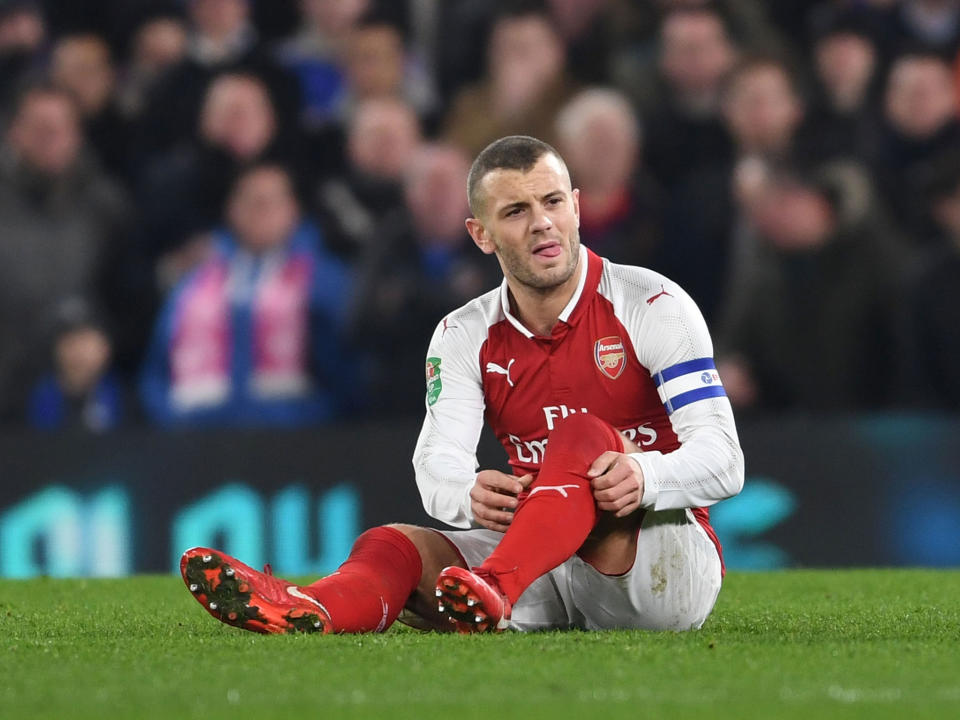It is Wenger's fault that Wilshere and Walcott cannot replace Ozil and Sanchez

When Arsene Wenger took over Arsenal, he was indisputably beneficial for the English players at the club. There were so many demonstrable cases of improvement that not only did his influence help the English players at Arsenal, but those across the Premier League. The professionalism of the Premier League owes a debt to Wenger’s knowledge. However, Wenger’s leadership at Arsenal may now be counterproductive.
Wenger took over and extended the careers of Tony Adams, Martin Keown, Lee Dixon, Nigel Winterburn, Ray Parlour and David Seaman, amongst others. He offered Paul Merson a two-year extension before he decided to move to Middlesbrough, when he had been playing some of the best football of his career. Some of these players weren’t known for their healthy approach to life off the pitch. Without Wenger demonstrating to them the power of broccoli, they would have retired early, or been unable to maintain their form for so long.
In turn, the Arsenal manager benefitted. He inherited one of the finest back fours of all time, and was able to focus his attention higher up the pitch. A tough spine of Emmanuel Petit, Patrick Vieira, and with the various talents of Robert Pires, Marc Overmars, Thierry Henry and Nicolas Anelka, he made Arsenal into one of the Premier League’s greatest teams. Sol Campbell came on a free, and Ashley Cole emerged as Wenger oversaw the only unbeaten Premier League season.
READ MORE: Arsenal to hold talks with Bordeaux for Malcom
READ MORE: Kolasinac and Mustafi court Draxler for Arsenal
READ MORE: Wenger – Arsenal not preparing Malcom bid
Campbell might have been Wenger’s sole successful signing as an English player. Looking more generally, it seems that Wenger has struggled for decades to turn the English players at his disposal into world class talent. Robin van Persie, Cesc Fabregas, Alexis Sanchez and Henry left – or will leave – as some of the finest talents in Europe. The same can’t be said for Francis Jeffers.
Jeffers was signed as a poacher, but was unable to maintain his form at Everton for Arsenal. He suffered from injury, and returned on loan to Everton before his career slowly tailed off. The injuries were unfortunate, but the failure to develop is now a common problem.
Theo Walcott, the next major English signing, was expected to be English football’s next great talent. Playing off the wing, with the pace to destroy the best defences, it was hoped that he would develop into a replacement for Henry, who departed for Barcelona a few years after Walcott’s arrival. Sven Goran Eriksson included him in his World Cup squad despite him being a teenager. It was too soon, but it was not an absurd decision. Walcott seemed to have the temperament, pace and physique to be developed by Wenger.
Walcott has been at Arsenal for more than a decade now, and it can’t be said that he has made any meaningful improvement for the vast majority of that period. There were flashes of form at a younger age that attracted Manchester City, but they must regard missing out on him as a dodged bullet. The ‘Sign Da Ting’ debasement from club and fans has been rewarded with years of overconfidence, inconsistent form, injury and only rare flashes of talent. If ever a player needed a manager who could guide him to make the most of his talents, it was Walcott. Occasionally he is mooted as up for sale, yet still Wenger ultimately persists with him.
The same can be said of Jack Wilshere. When he was given his debut as a teenager, he looked remarkably assured. He looked so good that he barely seemed English. The way he ran was pure Gazza, but the passes he could pull off were closer to Brian Laudrup. He certainly had the potential to be England’s best midfielder since Steven Gerrard, Frank Lampard and Paul Scholes (yes, they failed for England too, but they were all great players at some point).
Instead of matching anything like his potential, Wilshere’s career was hamstrung by injury and marked by indiscipline. He was caught up in problems with the police and was spotted smoking. He was applauded off after being sent off for a wild tackle, and most importantly: he never improved. Wilshere is the same player at 26 as he was at 17. Paul Scholes, in his first year as a pundit, pointed out that Wilshere had never kicked on, and he was wasting his chance. Somehow under Wenger he still has that chance, but he has almost certainly wasted his career.
Wenger appeared to give up on him when he left for Bournemouth, but indulged him another season. Gradually he was brought back into the side after some impressive performances in cup competitions. Playing for a new contract, Wilshere was able to put together a string of games and show the same skills he demonstrated as a teenager. But nothing else. And still there is an expectation that he could be given a new contract.
There are others. Calum Chambers and Alex Oxlade-Chamberlain have shown Luke Shaw just how to underperform after leaving Southampton. Oxlade-Chamberlain left for Liverpool, but such is his indefinable qualities that nobody really understands why. Danny Welbeck left United after correctly identifying that United were entering a decline, but chose to find a club where he would not be improved himself by one iota.
This happens so often that while the players have some responsibility, for the club the fault rests with Wenger. There is a general and extensive malaise at Arsenal, and there are bigger problems right now than Wilshere and Walcott. But Arsenal fans should by wondering why neither of them are ready to step in to replace Sanchez and Mesut Ozil, as all four approach the exit.


